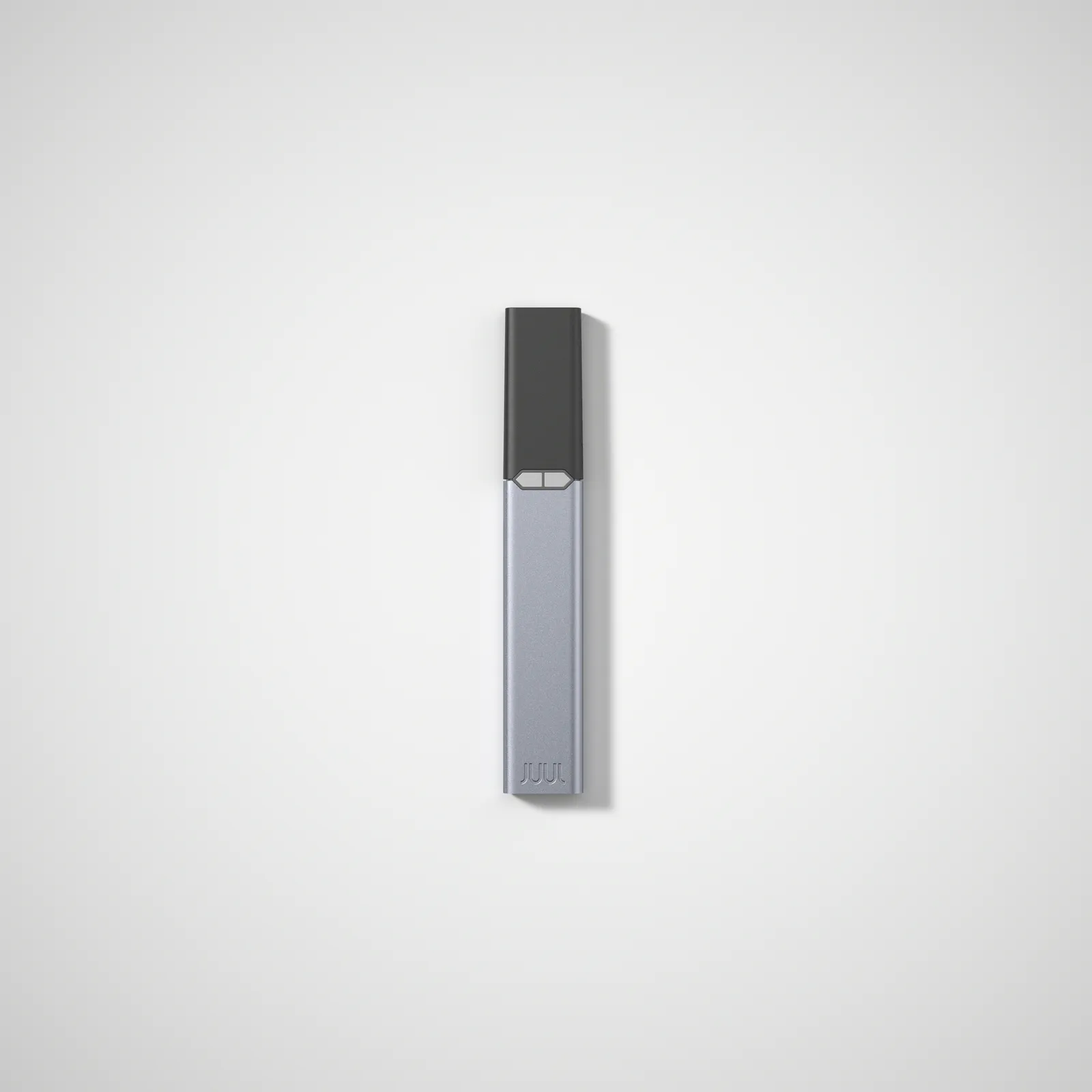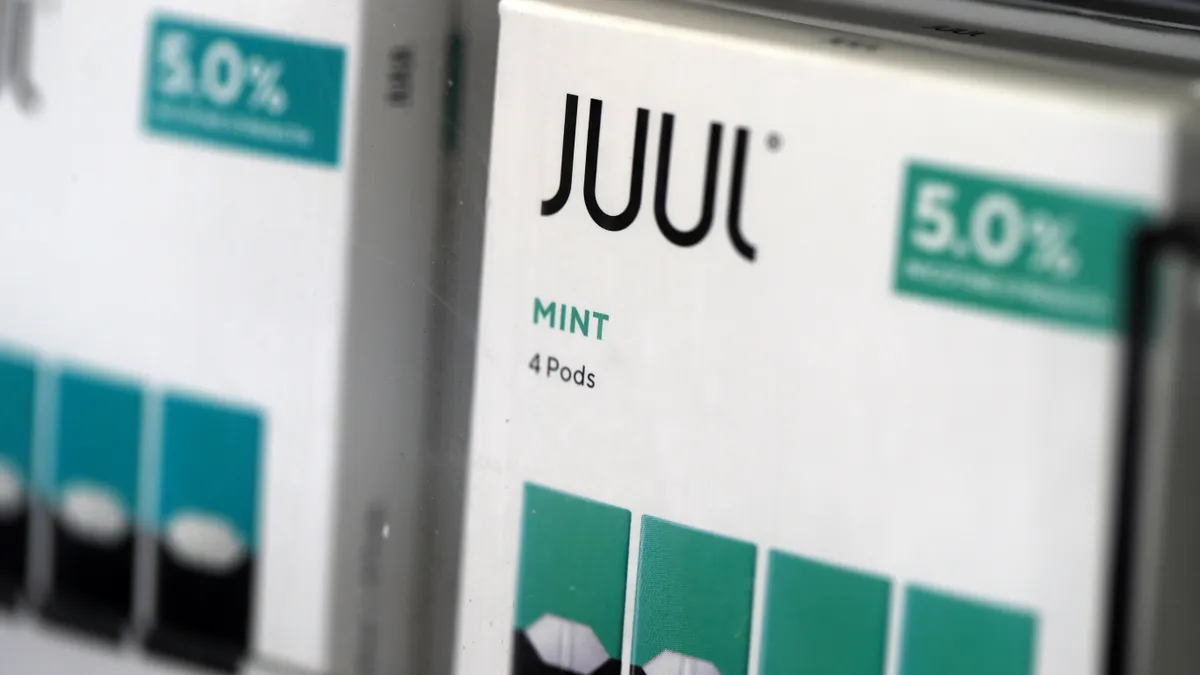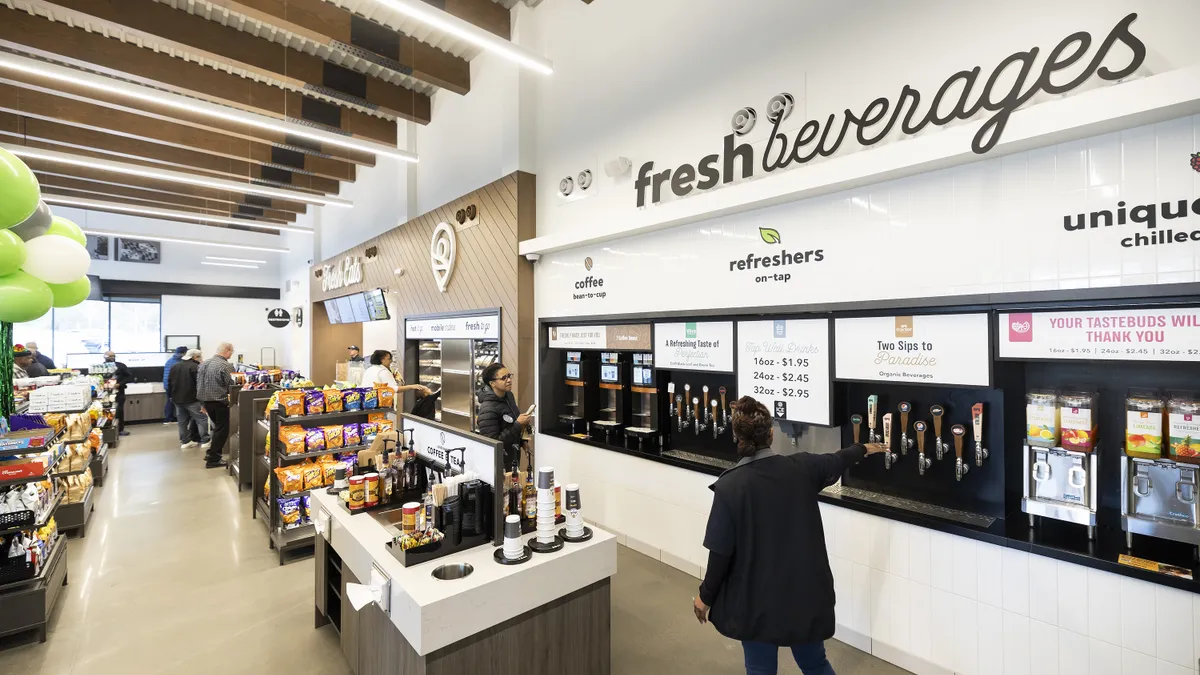Dive Brief:
- Juul Labs is seeking approval for its next-generation vaping platform from the U.S. Food and Drug Administration, according to a Wednesday press release.
- The company has submitted a premarket tobacco product application (PMTA) for the device and pods, which has already been sold in the U.K. under the name Juul2 System since 2021.
- Having faced thousands of lawsuits in the U.S. related to underage smokers using its devices, Washington, D.C.-based Juul has included features in the new product intended to limit underage access.
Dive Insight:
Juul’s features to limit underage access are tied to the mobile and web-based app that the company’s new product connects with. The app uses age-verification technology, offers product usage insights and has the ability to lock the device.

The new product also includes tamper-resistant pods and a pod identification chip, which promises to cut down on the use of counterfeit pods that could include unauthorized flavors that draw young smokers.
“With our next-generation platform, we have designed a technological solution for two public-health problems: improving adult-smoker switching from combustible cigarettes and restricting underage access to vapor products,” said Kirk Phelps, chief product officer for Juul.
In the U.K., more than 32% of Juul2 users switched completely from combustible cigarettes after using the Juul2 System for six months, according to the press release.
“Our next-generation vapor platform PMTA is built on new technology that advances public-health objectives and compelling science that demonstrates a clear public-health benefit, as required to secure a marketing authorization,” said Joe Murillo, Juul’s chief regulatory officer.
While Juul is still pursuing approval of its previous platform, as well, the new device could give it a fresh start.
The company has paid over $1 billion to settle lawsuits in 47 states related to accusations that it targeted underaged smokers. It’s also still waiting for the FDA to re-examine its initial application for marketing approval of its first-generation devices. Those devices initially received marketing denial orders, but are still for sale in many places thanks to an administrative stay the FDA issued after Juul brought a suit in the U.S. Court of Appeals.









